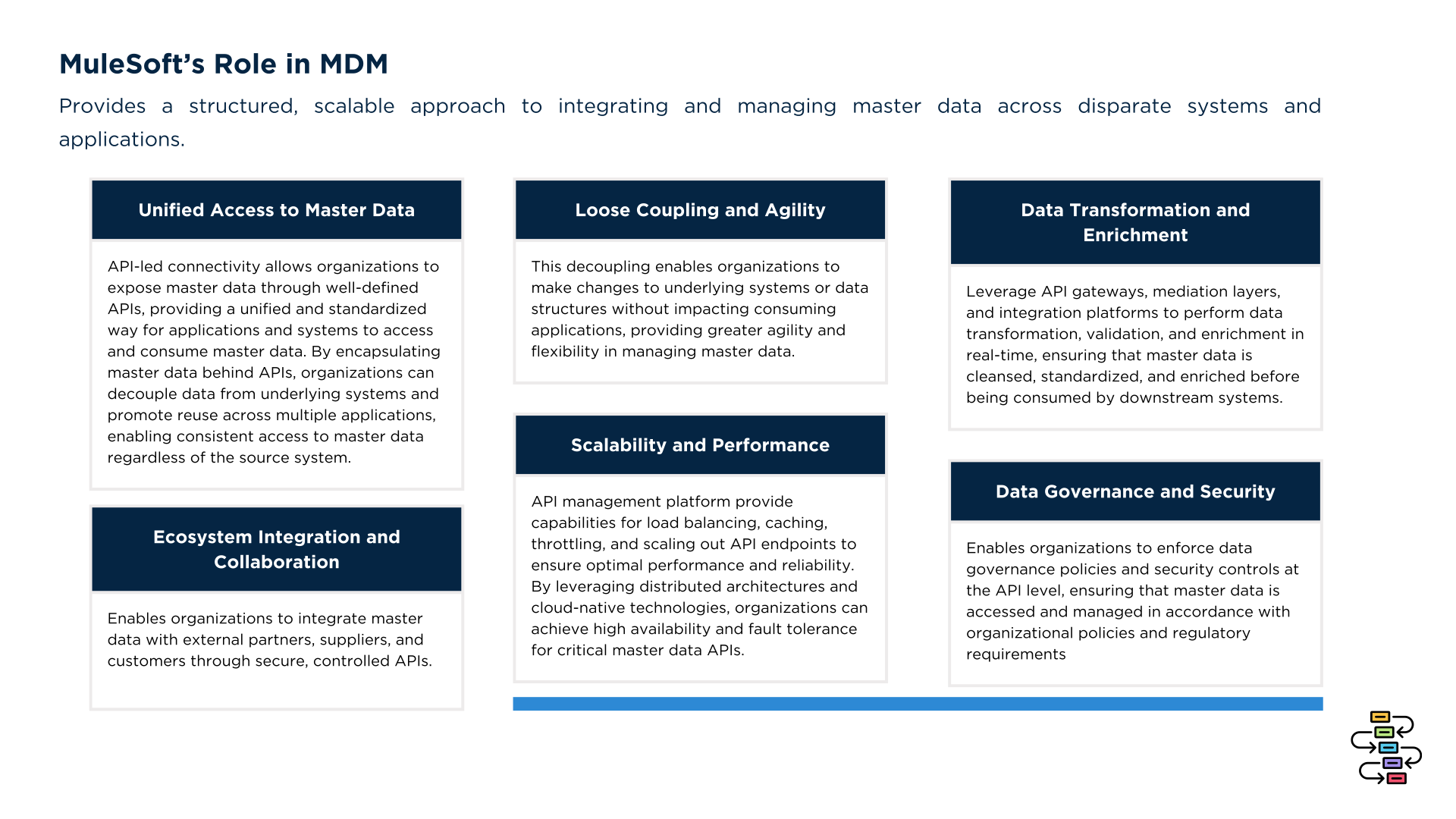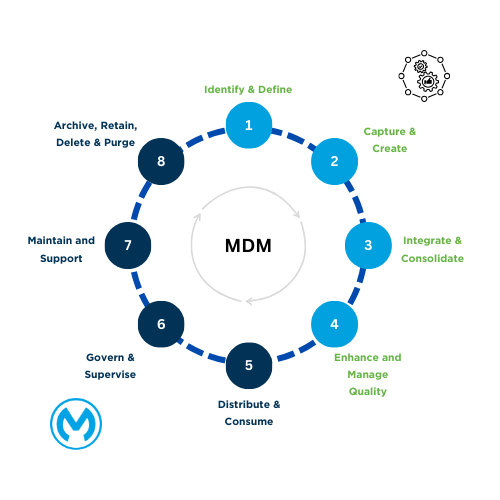API-led connectivity plays a crucial role in achieving efficient Master Data Management (MDM) in an enterprise by providing a structured, scalable approach to integrating and managing master data across disparate systems and applications.
By encapsulating master data behind APIs, organizations can decouple data from underlying systems and promote reuse across multiple applications, enabling consistent access to master data regardless of the source system.
API-led connectivity promotes loose coupling between systems by abstracting data access and integration logic behind APIs. Changes to master data models or business rules can be implemented independently of consuming applications, reducing the risk of disruption and accelerating time-to-market for new initiatives.
Organizations can leverage API gateways, mediation layers, and integration platforms to perform data transformation, validation, and enrichment in real-time, ensuring that master data is cleansed, standardized, and enriched before being consumed by downstream systems.
API gateways provide centralized enforcement points for authentication, authorization, encryption, and auditing, allowing organizations to secure master data and control access based on user roles, permissions, and usage policies.
API management platforms provide capabilities for load balancing, caching, throttling, and scaling out API endpoints to ensure optimal performance and reliability. By leveraging distributed architectures and cloud-native technologies, organizations can achieve high availability and fault tolerance for critical master data APIs.
By exposing master data APIs to external ecosystems, organizations can streamline data exchange, facilitate collaboration, and unlock new business opportunities. API management platforms provide capabilities for partner onboarding, API monetization, and analytics, allowing organizations to derive value from their master data assets
A quick snapshot is as put here in this image below..


